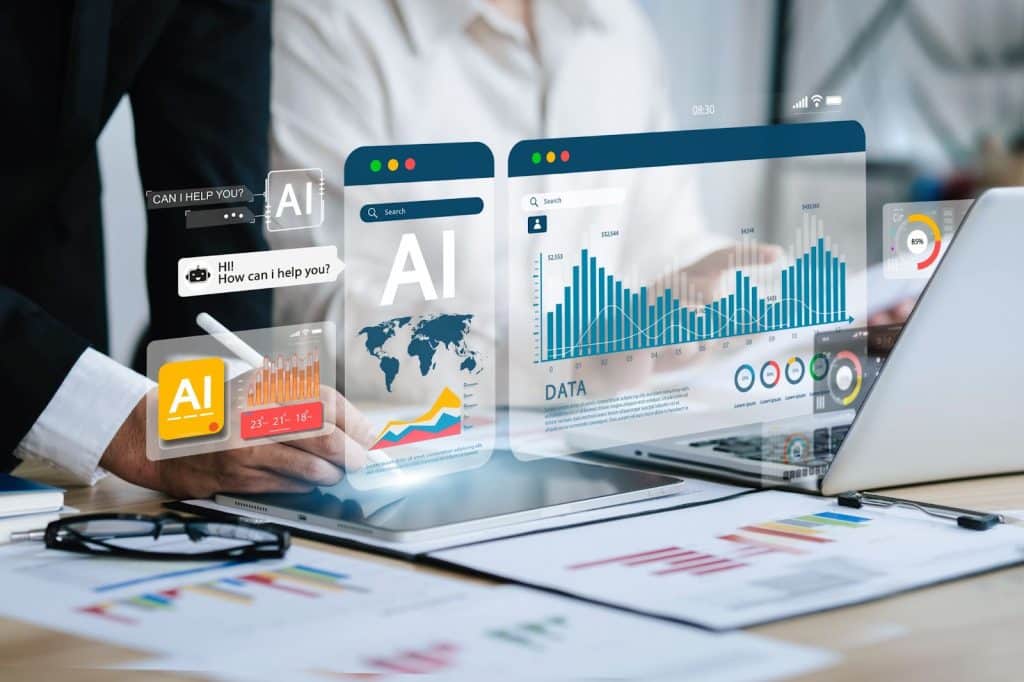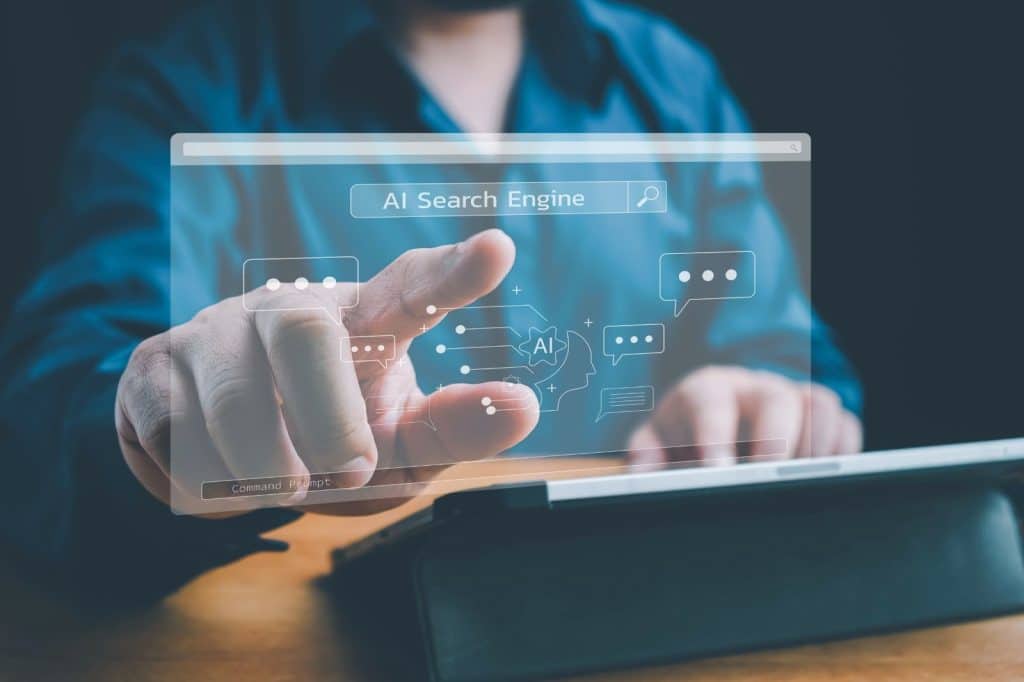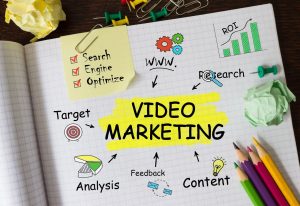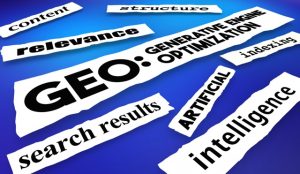AI marketing tools are revolutionizing the digital landscape, providing businesses with unprecedented capabilities to enhance their marketing strategies.
As these technologies continue to evolve, we’re finding more innovative ways to harness AI’s power, improving everything from personalized customer interactions to data-driven decision-making.
In this comprehensive guide, we will delve into the various AI tools every marketer should know about, exploring their functionalities, benefits, and strategies for effective integration. We cover everything from content creation to campaign management and ethics to consider throughout the process.
Whether you’re a seasoned marketer looking to upgrade your toolbox or a newcomer eager to understand AI’s potential in digital marketing, this blog will provide you with essential insights and practical advice to navigate the world of AI-enhanced marketing. Keep reading to learn more.
Understanding AI in marketing
In the fast-moving world of digital marketing, AI is a powerful accelerator, significantly sharpening and improving marketing strategies. It proves to be an invaluable asset, rapidly analyzing large volumes of data with exceptional precision to identify trends and consumer behaviors that are crucial for informed strategic planning.
Here’s a breakdown of how AI revolutionizes marketing:
Personalized customer experiences
AI tailors content, recommendations, and promotions to individual users by analyzing their historical behaviors, purchases, and preferences. This boosts customer satisfaction and increases loyalty and conversion rates.
Ad targeting and placement optimization
AI streamlines the advertising process by determining the most effective times and locations for ad placements. This targeted approach ensures ads reach the intended audience precisely when they are most receptive, maximizing ROI.
Content optimization
Through AI, marketers are able to identify which content resonates best with specific audience segments. This insight drives the development and distribution of future content, optimizing engagement across platforms.
Predictive analytics
AI’s predictive capabilities allow marketers to anticipate consumer actions and market trends. This forward-looking approach enables marketers to adapt strategies proactively, ensuring they remain competitive and relevant.
Automated customer interactions
AI-driven chatbots provide immediate responses to customer queries, enhancing user engagement and allowing human resources to focus on more complex queries. These bots continually learn from each interaction, progressively improving their effectiveness.
By integrating AI thoughtfully and ethically into marketing strategies, it’s possible to augment the creative and human aspects of marketing campaigns. AI isn’t about replacing the human touch; it’s about enhancing it, allowing for more effective and resonant marketing that truly connects with consumers.
Now that we’ve discussed how AI works in marketing, let’s examine the different ways AI works in different sectors of marketing.

AI tools for content creation and management
Content is king in digital marketing. You’ve probably heard that a thousand times because it’s so true.
However, producing and managing high-quality content at scale is a daunting challenge. Thankfully, AI tools for content creation and management are transforming this landscape, making it easier and more efficient to generate engaging content that resonates with audiences.
AI writing assistants
AI writing assistants utilize advanced algorithms to help streamline the content creation process. These tools assist writers by providing suggestions, generating content ideas, and even drafting entire articles based on initial input parameters.
For example, tools like OpenAI’s GPT-3 are able to generate readable, coherent, and contextually relevant text in a variety of styles and formats. This technology is particularly useful for generating blog posts, product descriptions, and even creative content for campaigns, significantly reducing the time and effort required in the initial drafting phase.
Writers can leverage AI writing assistants to overcome writer’s block, enhance the quality of their writing by suggesting improvements, and ensure consistency across all written content. This is not only a boon for productivity but also helps maintain a high standard of quality and coherence across various content platforms.
AI content management systems
AI content management systems (CMS) go a step further by aiding in content creation and optimizing workflows. These systems can analyze user engagement data to suggest content updates and adjustments that might better meet audience needs.
Tools like HubSpot and MarketMuse incorporate AI to offer insights into how well content is performing and provide recommendations for SEO improvements, such as what keywords are ranking and how long a blog should be.
An AI-powered CMS can automate mundane tasks such as scheduling posts, targeting content to specific segments of an audience based on past engagement, and even alerting marketers about the best times to post to maximize views and engagement.
By utilizing these tools, businesses ensure that their content reaches the right audience at the right time, thus enhancing the overall effectiveness of their digital marketing strategies.
AI tools for consumer insights and engagement
Understanding and effectively engaging with consumers are pivotal components of successful digital marketing. AI tools that gather consumer insights and boost engagement significantly transform brand interactions, making them more personalized and data-driven.
Chatbots and virtual assistants
AI-powered chatbots and virtual assistants are transforming customer service and engagement in digital marketing. These tools use natural language processing (NLP) to understand and respond to user inquiries in real time, providing a seamless and interactive experience for users.
Platforms like Drift and Intercom offer sophisticated chatbot services that can handle a wide range of tasks from answering frequently asked questions to guiding users through complex processes like product selection or troubleshooting.
These AI assistants operate around the clock, providing constant support without the need for breaks or downtime, which significantly enhances customer satisfaction and retention.
They can also gather valuable insights from interactions, which help them understand common customer issues, preferences, and behaviors. You can use this data to refine marketing strategies and improve product offerings.
Customer Data Platforms (CDPs)
Customer Data Platforms (CDPs) are another vital AI tool that helps marketers manage and utilize consumer data effectively.
Platforms like Segment and Zaius integrate data from multiple sources to create a unified customer profile. This consolidation allows marketers to segment audiences more accurately and tailor marketing messages to meet the specific needs and preferences of different groups.
AI-powered CDPs analyze customer interaction data across channels to predict future behaviors and preferences, enabling marketers to anticipate customer needs and personalize their outreach. This predictive capability ensures that marketing efforts are not merely reactive but proactively aligned with what the customers are likely to want next.
Plus, AI in CDPs can trigger automated marketing actions based on customer behavior, such as sending a personalized email when a customer abandons a shopping cart or recommending products similar to those they have shown interest in.
This not only increases the chances of conversion but also enhances the overall customer experience by making it feel uniquely tailored to individual preferences.
AI tools for advertising and campaign management
Artificial intelligence is revolutionizing advertising campaign management by automating complex processes and enabling more targeted, efficient, and effective strategies. Two key areas where AI is making a significant impact are programmatic advertising platforms and AI-powered campaign management tools.
Programmatic advertising platforms
Programmatic advertising platforms utilize AI to streamline the process of purchasing and positioning ads across diverse media, including online platforms, mobile devices, and traditional outlets like television.
These platforms enable real-time bidding (RTB), a method where ads are bought and sold instantly based on each viewer’s impression. AI-driven algorithms assess various factors such as audience behavior, demographics, and psychographics to decide which ads to purchase and the appropriate amount to spend.
Platforms like AdRoll and Criteo harness AI to fine-tune ad campaigns with specific objectives in mind, such as boosting user engagement or increasing conversion rates.
They sift through extensive data to pinpoint the most effective ad placement opportunities, ensuring ads are seen by the right audience at the best possible time and cost.
This strategic placement optimizes the return on investment for ad budgets and enhances the overall effectiveness of the campaigns.
AI campaign tools
Apart from automating ad buying, AI tools are revolutionizing campaign management by enhancing insight gathering and streamlining various stages of campaign development, execution, and evaluation.
AI-driven tools like Albert and Pega employ machine learning algorithms to forecast the effectiveness of different marketing strategies, enabling marketers to tweak and enhance their tactics in real time.
These AI tools can manage complex decisions automatically, such as reallocating budgets across different channels, shifting focus among various audience groups, or experimenting with different creative elements to see which combinations yield the best results.
They also deliver detailed analytics, providing marketers with a deep understanding of how their campaigns are performing and allowing them to make data-driven adjustments, rather than relying solely on guesswork.
AI campaign tools are designed to integrate smoothly with existing marketing technologies, facilitating a harmonized approach to managing every aspect of a campaign.
This seamless integration fosters a more unified and coordinated effort across teams and communication channels, resulting in more consistent and impactful marketing messages.

AI tools for performance analysis and marketing ROI
In the ever-evolving digital marketing landscape, you need to measure how effective your campaign is if you want to be successful. AI tools for performance analysis and marketing ROI are transforming how marketers track, analyze, and interpret campaign data to drive better outcomes.
Performance analysis with AI
AI technologies handle complex data analysis, allowing for real-time performance tracking and insights. These tools utilize advanced algorithms to sift through vast amounts of campaign data, identifying patterns and anomalies that might not be visible to the human eye.
This process includes measuring engagement rates, click-through rates, conversion metrics, and more, providing a comprehensive view of campaign performance.
AI-driven analytics tools can predict campaign success by comparing current performance against historical data, helping marketers anticipate results and make proactive adjustments.
Platforms like Google Analytics and Adobe Analytics are augmented with AI to offer predictive insights and automated anomaly detection, thereby enhancing decision-making processes.
Optimizing marketing ROI
AI tools are instrumental in optimizing the return on investment (ROI) from marketing campaigns. These tools can fine-tune marketing efforts by integrating machine learning models to ensure maximum impact.
For example, AI can automate budget allocation across various channels to optimize spending based on performance trends, ensuring marketers get the best bang for their buck.
AI also enhances ROI through improved targeting and personalization. By analyzing customer data, AI tools help marketers create highly targeted campaigns that are more likely to convert, increasing overall efficiency and reducing resource waste.
Comprehensive reporting tools
AI-powered platforms offer sophisticated reporting features to help marketers understand and communicate the effectiveness of their campaigns.
These tools generate detailed reports that highlight successes and areas for improvement and provide actionable insights for future strategies. This level of detail helps marketers justify marketing spend and clearly demonstrate the value of their efforts to stakeholders.
Ethical considerations in AI marketing
As AI continues to permeate various aspects of digital marketing, it introduces a set of ethical considerations that marketers must navigate carefully. Ensuring the ethical use of AI in marketing fosters trust with customers and aligns with broader societal values and legal standards. Here are key ethical issues to consider:
Data privacy and consent
AI systems require vast amounts of data to learn and make decisions. Marketers must ensure that the data used is collected transparently and with individuals’ explicit consent.
Adhering to data privacy laws, such as the General Data Protection Regulation (GDPR) in the EU or the California Consumer Privacy Act (CCPA), is crucial.
Marketers should provide clear information about what data they are collecting, how it is being used, and whom it is shared with, allowing customers to make informed decisions about their personal information.
Bias and fairness
AI algorithms sometimes reflect or amplify biases present in their training data or design. In marketing, this could lead to unfair targeting or exclusion of certain groups, affecting the brand’s reputation and customer relationships.
Marketers need to continuously monitor and audit their AI tools to detect and mitigate any biases. This involves using diverse and inclusive data sets for training AI and implementing checks and balances to ensure that AI decisions are fair and non-discriminatory.
Transparency and accountability
There should be clarity about when and how AI is being used in marketing strategies. Customers have the right to know if they are interacting with a machine rather than a human, such as in the case of chatbots.
Marketing professionals should be able to explain AI systems’ decisions, particularly in high-stakes scenarios. Accountability measures should be in place to address any issues or errors that AI might cause, ensuring there are processes for human oversight and intervention when needed.
Consumer autonomy
AI’s ability to analyze behavior and predict preferences leads to highly personalized marketing. However, this should not manipulate consumer behavior or impinge on their autonomy.
Marketers must be cautious about using AI in ways that could be seen as coercive or intrusive. This includes respecting user preferences for advertising and information consumption and avoiding techniques that might exploit vulnerabilities or decision-making biases.
Continuous ethical education
As AI technologies evolve, so do the ethical challenges associated with them. Marketing teams should stay informed about the latest developments in AI ethics.
Regular training and discussions about ethical issues should be part of marketers’ professional development. This ensures they are proficient in using AI tools and aware of their ethical implications.
By addressing these ethical considerations, marketers can use AI responsibly, enhancing their campaigns’ effectiveness while maintaining trust and integrity with their audience. This approach mitigates risks and contributes to building a sustainable and ethical digital marketing landscape.

Integration strategies for AI tools
Successfully integrating AI tools into existing marketing platforms and strategies is crucial for harnessing their full potential while minimizing disruption to ongoing operations. Here are some effective strategies for integrating AI into your marketing efforts:
Assess and align with your business goals
Before integrating any AI tool, it’s essential to clearly define what you want to achieve with AI. Assess your current marketing strategies and identify areas where AI can provide the most benefit, such as customer segmentation, content personalization, or predictive analytics.
Aligning AI tools with specific business objectives ensures that the integration delivers tangible results and contributes to overarching business goals.
Choose the right AI tools
With a plethora of AI tools available, selecting the right ones that meet your specific needs is critical. Evaluate potential AI solutions based on their compatibility with your existing systems, ease of integration, scalability, and support offered. It’s also important to consider the vendor’s reputation and the community or customer feedback regarding the tool.
Pilot testing
Implementing AI tools directly into all aspects of marketing campaigns can be risky. Instead, conduct pilot tests where you apply AI to a small segment of your marketing processes. This approach allows you to monitor the AI tool’s performance and effectiveness and identify any issues or areas for improvement without affecting the larger marketing strategy.
Cross-functional collaboration
AI integration should be a collaborative effort involving various teams within the organization, including IT, data science, marketing, and sales.
This collaboration ensures that all departments understand how the AI tools work and their role in the broader business context. Regular meetings and workshops facilitate this cross-departmental collaboration, fostering a unified approach to AI integration.
Data management
AI tools rely heavily on data, so having a robust data management system is crucial.
Ensure that your data is clean, well-organized, and accessible before integrating AI. This might involve data cleaning processes, data integration from various sources, and establishing protocols for ongoing data management. Good data governance practices will enhance the performance of AI tools and provide more accurate insights.
Continuous learning and adaptation
AI technologies are continually evolving, and so are the marketing landscapes they are applied to. After integrating an AI tool, it’s vital to keep learning about new features and improvements that could enhance your marketing efforts. Encourage ongoing training and development for team members to adapt effectively to new AI functionalities and capabilities.
Monitor performance and iterate
Once you’ve integrated AI tools, continuously monitor their performance against the set benchmarks and KPIs. Use the insights gathered to refine and optimize the AI’s parameters. Regular auditing and updating of AI systems are essential to ensure they adapt to new data and changing market conditions, maximizing the ROI of your AI investments.
By following these integration strategies, businesses can ensure a smooth transition to AI-enhanced marketing, minimize risks, and maximize the effectiveness of their digital marketing strategies.

Utilize AI marketing tools with Revity Marketing Agency
Are you ready to elevate your marketing efforts and stay ahead of the curve with advanced AI marketing tools? Look no further than Revity Marketing Agency. Our expert team integrates the latest AI technologies tailored to enhance your marketing strategies, ensuring you achieve unparalleled efficiency and effectiveness in your campaigns.
At Revity Marketing, we understand that navigating the fast-evolving landscape of AI can be challenging. That’s why we’re here to guide you every step of the way, from selecting the right tools to optimizing their deployment to achieve your specific business goals.
Embrace the power of AI and transform your marketing approach with data-driven strategies designed to maximize engagement and conversion.
Whether you’re looking to improve customer personalization, streamline your campaign management, or gain deeper insights through advanced analytics, Revity Marketing has the expertise and technology to make it happen.
Don’t let the opportunity to innovate and outpace your competition pass you by. Contact Revity Marketing today, and let’s harness the potential of AI marketing tools together.
Let us help you turn data into actionable insights and strategies that drive real, measurable results. Start your journey towards smarter marketing with Revity Marketing now — because when it comes to the future of digital marketing, the future is AI-powered, and the future is now.





